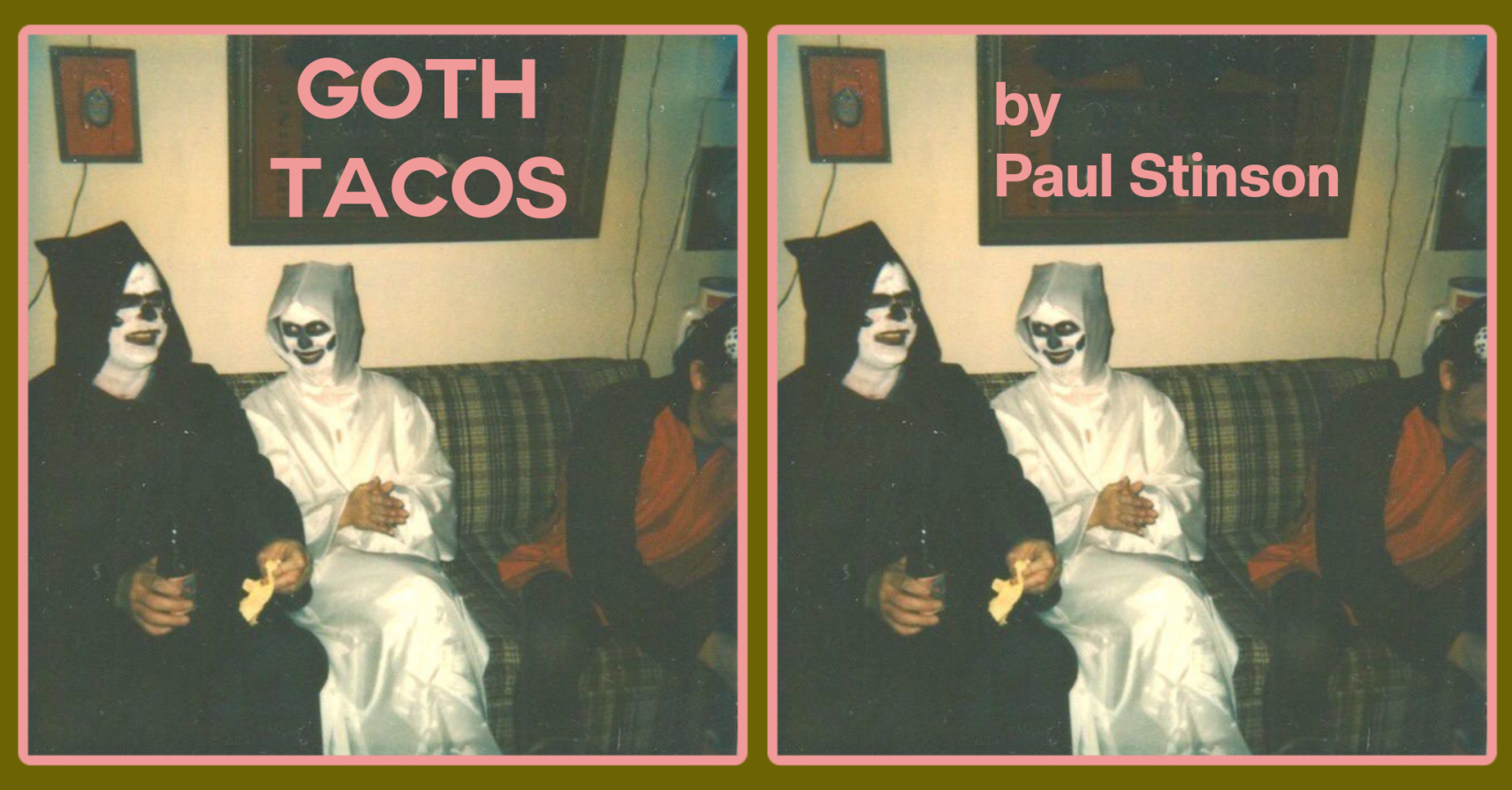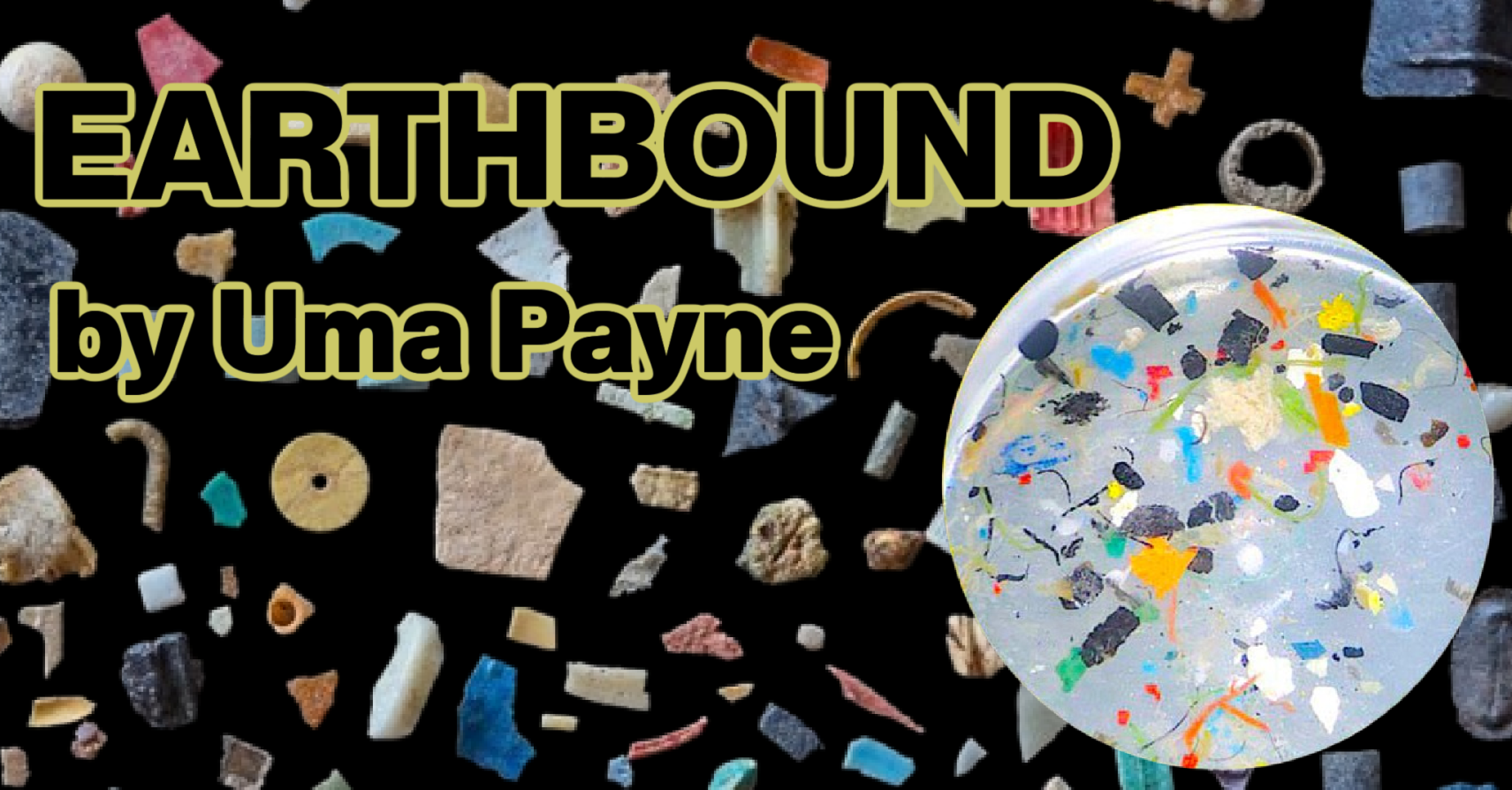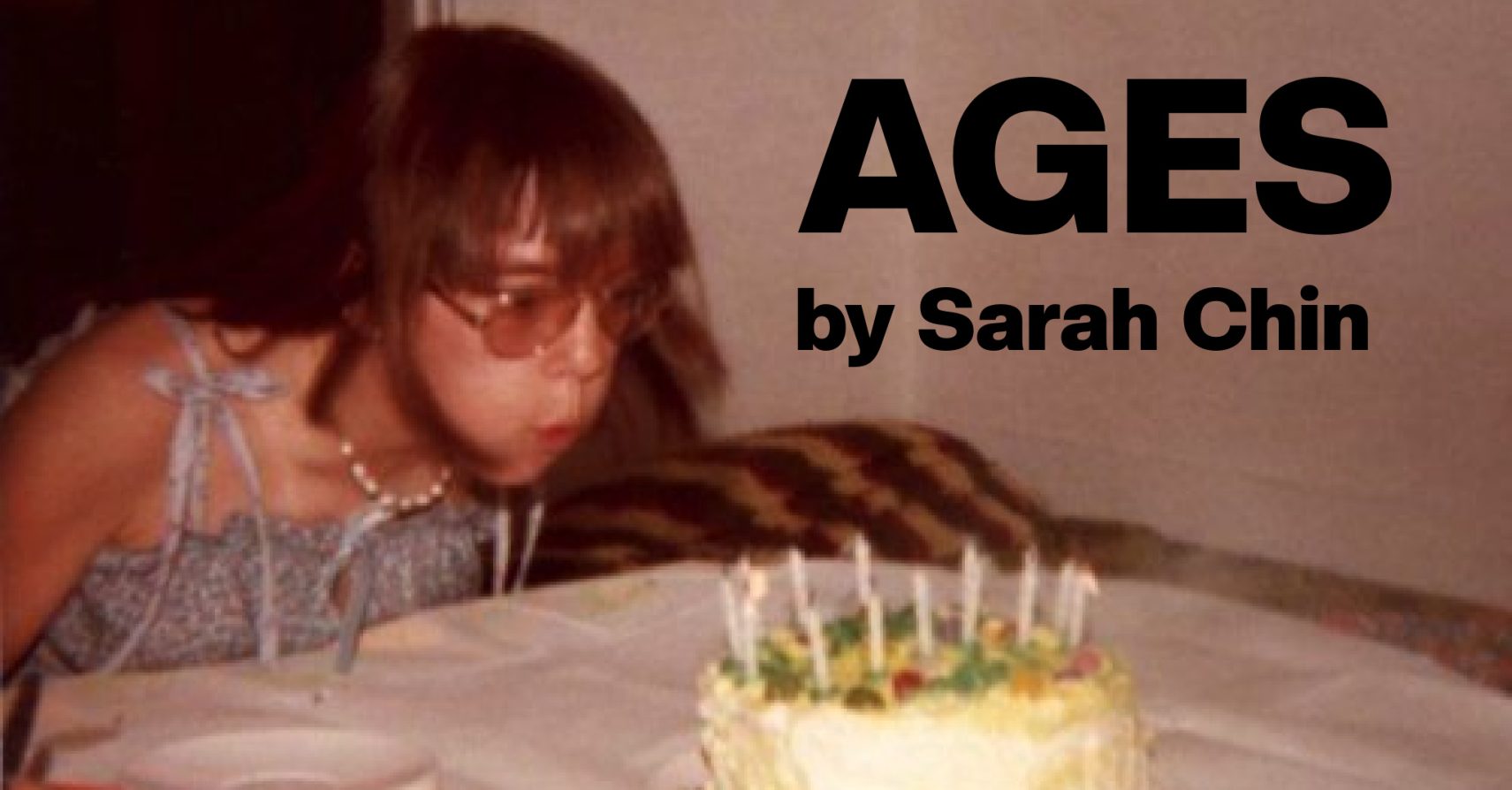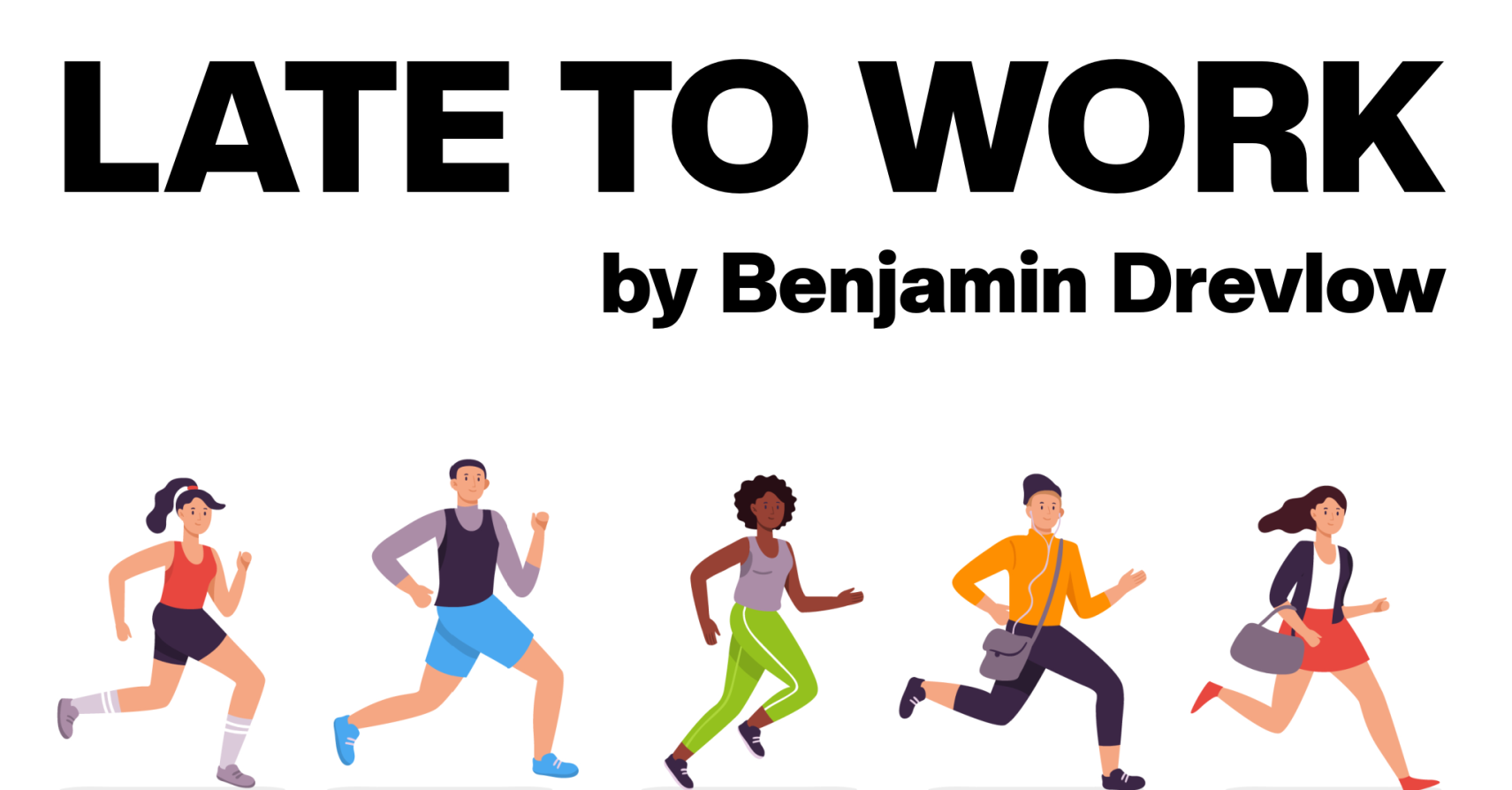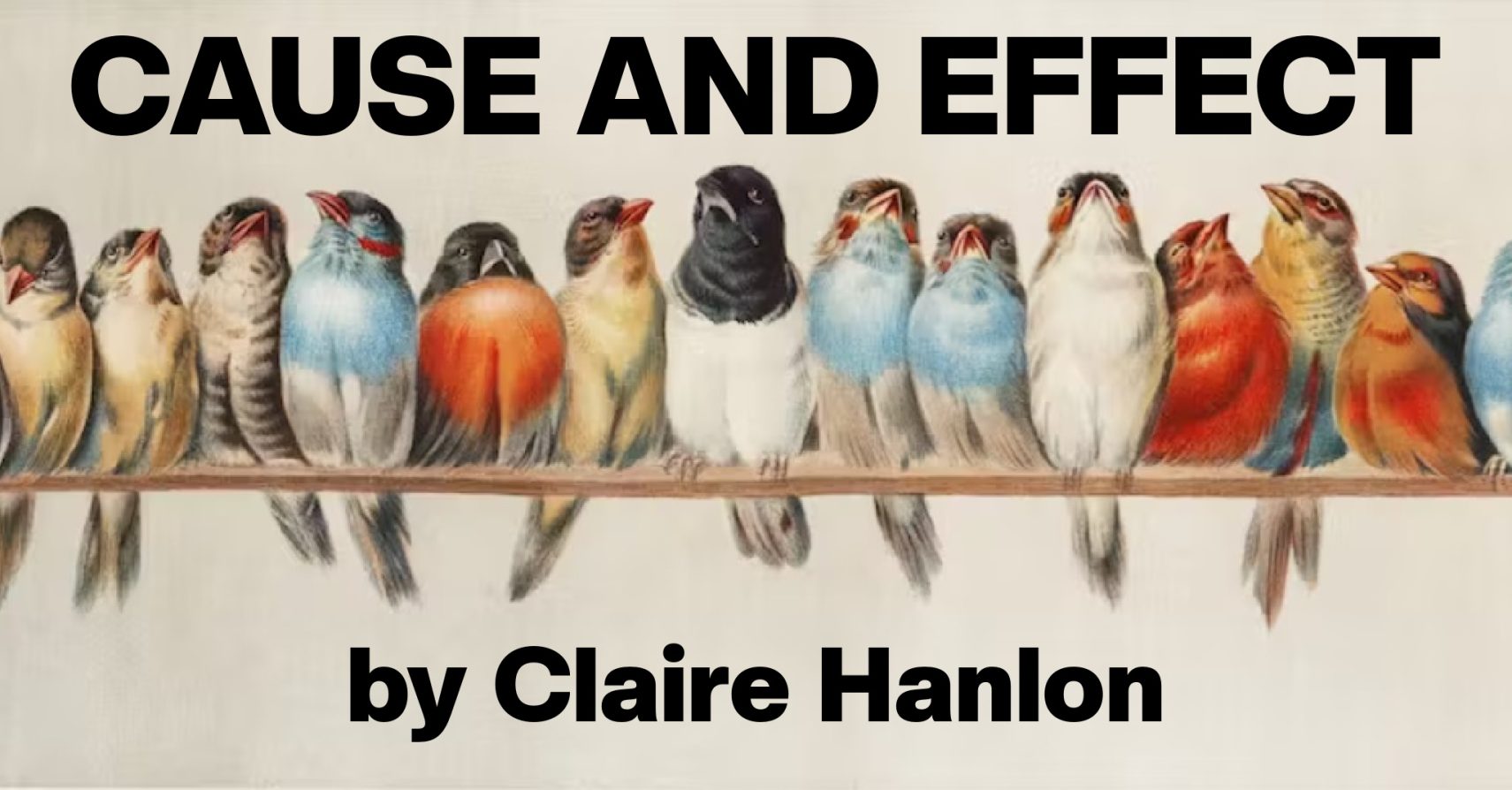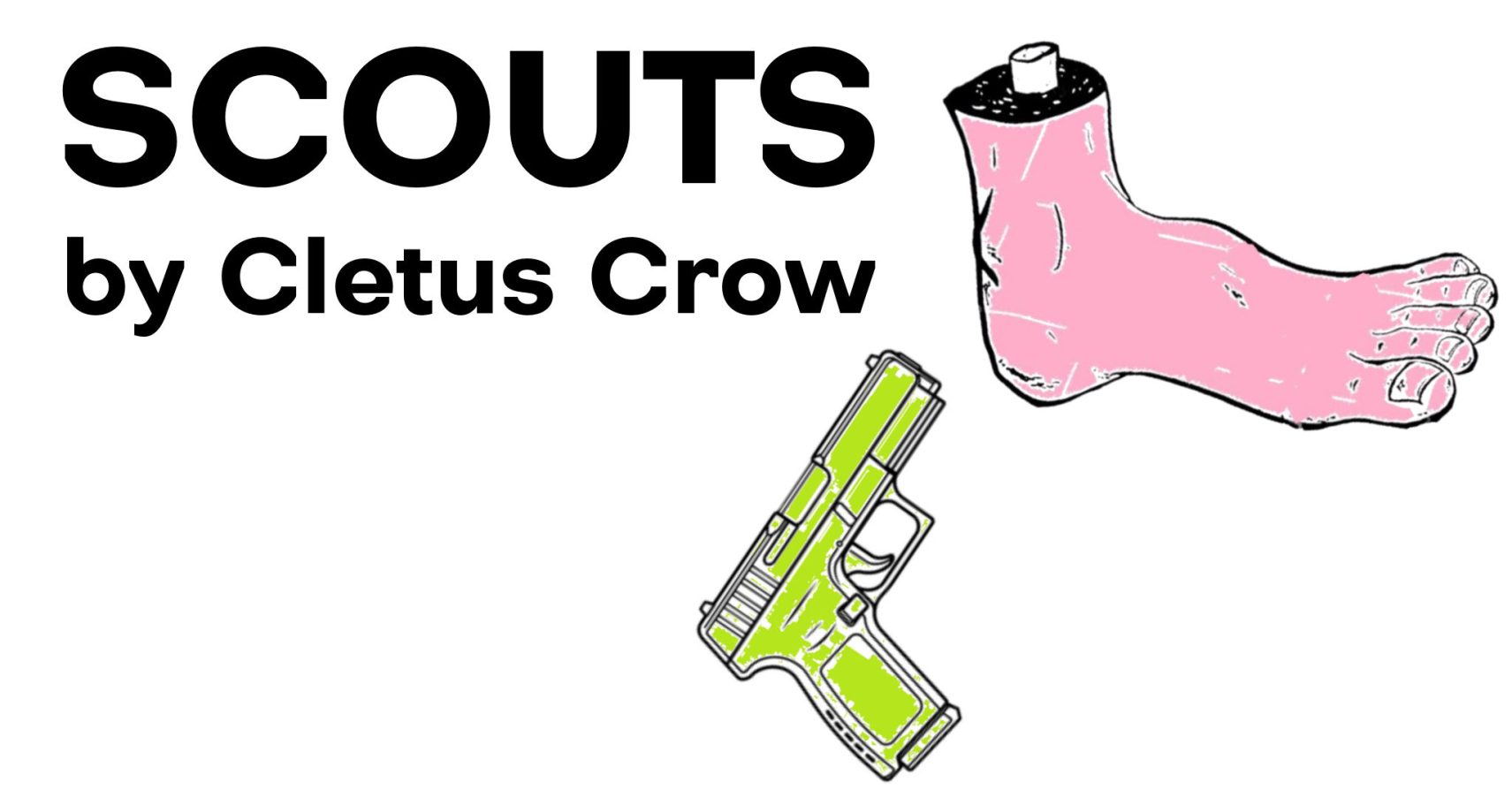
SCOUTS by Cletus Crow
Drake catches a boot with the foot still inside. The policeman lets him touch his gun. We all eat mandarin oranges, even the policeman. We’re not allowed to talk about the foot, but we talk about it because we’re boys. We’re not allowed to tell scary stories around our campfire. When everyone else falls asleep, I hike up to the lake with my rod, hoping to catch hands, arms and legs, maybe a head. I want to compile one whole man. I only hook bass and some brim. Then, I feel a greater tug. I wonder if the policeman will…

